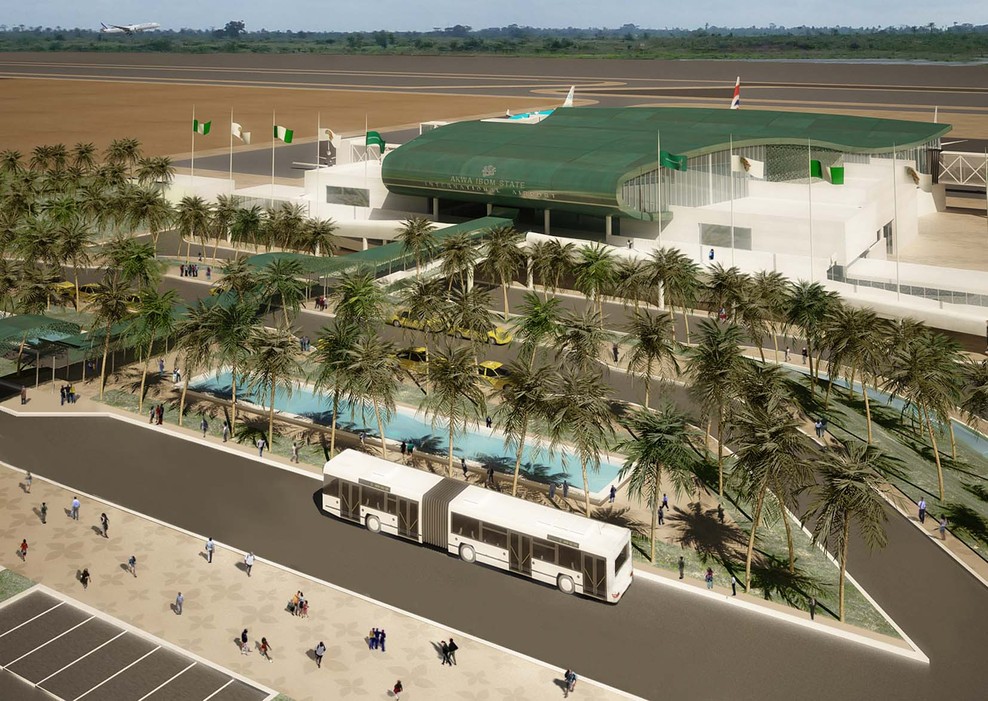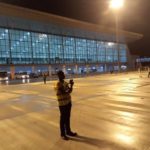
By Charles Oleka
Aviation industry stakeholders have raised the alarm over the spate of airports being built by state governments, saying that such projects are wasteful because less than one per cent of the nation’s population, travel by air.
The experts also said that huge amount of money that should be deployed to provide critical infrastructure like water, roads, health institutions and schools are “dumped’ in unprofitable ventures that only serve few highly placed individuals, while essential amenities that would serve majority of the population are lacking.
The industry stakeholders also noted that many existing state airports, after gulping huge resources are not even functional because they don’t receive regular flights and they are also not well maintained because of the huge cost of maintenance.
States that already have their own airports include Jigawa, Bauchi, Gombe, Kebbi, Delta, Bayelsa, Warri (managed by private concerns), Taraba and the states that are already building airports include Ogun, Osun, Ekiti, Anambra, Nasarawa, Jigawa and Ebonyi.
Some of the projects have already gulped huge resources from the states coffers.
Former Managing Director of Capital Airlines and currently industry consultant with Etimfri Group, Amos Akpan, told Safeflight in Lagos on Sunday that most state governments in Nigeria do not need an airport in their short and medium term development programmes and urged that they should use the money earmarked for airport development to provide infrastructure that is within the global basic minimal indices of development.
“In doing so, the state government would have deployed the commonwealth of the state for the benefit of the greater number of the people of the state,” he said.
Akpan disclosed that an airport that can accommodate double isle aircraft like Boeing B747 and 787 or Airbus A340 would cost about $1 billion (N360 billion) inclusive of at least three gates, terminal facilities, warehouses, perimeter fencing, and a four thousand meters runway.
“It will cost about N50 million per month to maintain its operational status. This level of cost is the reason we see most state airports in yet-to-be completed status. They are opened for services while the other phases of the construction will be on going,” he said.
Akpan noted that the Delta state government has taken the best option by the concession of their airport to private investors and private management, remarking that this was possible because it is one of the few state airports that have prospects that could attract private investment.
“Let me re-emphasise that while airport is one of the indices of development, it is not on the top of the list among the basic minimal indices even within the transport sector for our states.
The indices of development applicable to a defined territory with defined number of human residents include availability of drinkable and usable water in every home or compound; accommodation for every unit of family; accessible basic health care for every citizen and family unit; opportunity for every resident to acquire elementary education that can be used as baseline to further gain the skills to ply a trade and ability for the residents of the state/territory to afford two meals a day,” the industry consultant said.
He noted that to meet the above basic indices, the government of that state must choose and execute projects that will lead to the provision of those basics minimal infrastructures first.
“There are states in Nigeria that are building airports while 70 per cent of her citizens cannot access drinkable water in their homes. Farmers have no rails or access roads linking their communities to city markets. Farmers do not have financial value commensurate to their products because there are no storage facilities. Teachers and students have no access to computers. A state where two out of five infants die at birth due to inadequate health care facilities and a state that cannot provide eight hours of electric power in a day. Such states should not have the construction of an airport in their short or medium term programme,” he added.
Reacting to the decision of many state governors to build airports, the secretary of industry think-tank body, Aviation Round Table (ART) and the former Commandant of the Murtala Muhammed International Airport (MMIA), Lagos, Group Captain John Ojikutu (retd), said in Lagos that except the Delta state with the Asaba airport, not many state had good business plans before they ventured into the ‘trade’ of building very unnecessary state airports.
“There are about 26 airports in the country today, seven are state owned and private, the remaining are federal and more than 15 or 80 per cent of these airports do not generate up two million passenger traffic in any year. Outside Lagos airport with passenger traffic of about five million annually in the South West, where the population is about 50 million, the total passenger traffic annually of Ibadan, Akure and Ilorin airports is much less than 600,000 in any year.
“So what passengers would the Ekiti airport (the state has kicked off plans to build an airport) be looking for? What are the researches on agricultural and other cash produce that are available as cargo for transportation to other parts of Nigeria or for export from Ekiti and the other states agitating for cargo airports? What is the sense in the plan of the Anambra government constructing another airport in Awka that is less than an hour drive to Asaba and Enugu airports? The total passenger traffic at Enugu, Asaba and Owerri airports serving six states is less than two million and what passenger traffic would Anambra be looking at from this figure to justify its business plans?” Ojikutu asked.
He remarked that while the Lagos state could have reasons to justify its planned second airport in the state because of its population and the stretch distances between its built up areas of Lekki and Epe to the MMIA, others should channel their resources towards other social amenities that would benefit the larger populations of their states like health, education, roads, housing and others.
However, travel expert and the organiser of Akwaaba African Travel Market, Ikechi Uko said that there is need for an airport in every part of the country, urging that any state that wished to build an airport should not be discouraged.
“In the absence of a national master plan that explains the role aviation should and would play in trade, tourism and strategic goals, the federating units like states can embark on targets that include airports. I support every state developing an airport or airfield to drive a smart economy.
“Three kilometer of airport tarmac will beat 3000km of road tarmac when tourism and trade is the goal. If we don’t develop a national plan to integrate this then states can do their own plans. Aviation and tourism just gave a famous city over $100 billion revenue in 2018,” Uko said.
Safeflight spoke to the General Manager, Public Affairs, the Nigerian Civil Aviation Authority (NCAA), Sam Adurogboye in Lagos yesterday on the implication of allowing states to build airports. He said that NCAA does not have the power to stop or approve states to build airports, but the regulatory authority monitors the building of the airport from the first to the last stage.
Adurogboye also said that it is the responsibility of NCAA to designate and categorise airports; that is, to determine whether an airport is an aerodrome, airfield or airports and also it determines the aircraft type that would be allowed to operate to such airports.
“We carry out oversight functions but we are not the one that approves airports. States always come up with the rationale to build airports, but our role is to monitor the building of the airport at every stage. The airport could be an aerodrome or main airport. We designate the airport and supervise it throughout the stages. But it is not in our purview to say the state should build or not but we make sure that you build to specification,” Adurogboye said.
Safeflight learnt that it is the federal government that gives approval to any state that wishes to build airports and according to regulations, the Federal Airports Authority of Nigeria (FAAN), must provide security and fire cover personnel at every airport, whether build by state, organisation or the federal government.
This was confirmed by the spokesperson of FAAN, Henrietta Yakubu who said that FAAN provides Aviation Security (AVSEC) and fire cover at these airports.
However, she acknowledged that while the states manage the airports, the Bauchi state government had handed over the management of its airport to FAAN.
Recently FAAN closed some of the state owned airports because of the debts they owed the agency for the services it rendered to them.

The debt accumulated to millions of Naira.
After the agency withdraw its services, which stopped flights from landing at these airports, some of them paid FAAN while others agreed on payment timeline; the debts reinforced the position of the aviation stakeholders; that many of the airports cannot generate revenues that could be used to maintain them and pay airport personnel.
Airports under the management of FAAN include the ones in Lagos, Abuja, Ilorin, Sokoto, Yola, Kano, Enugu, Benin, Port Harcourt, Calabar, Ibadan, Akure, Katsina, Kaduna, Owerri, Maiduguri, Minna and Jos.
There are numerous airstrips the country, which include the ones in Ajeokuta, Azare, Bacita, Bajoga, Bida, Eket, Bebi, Escravos, Gusau, Nguru, Potiskum, Shiroro and Tuga.






